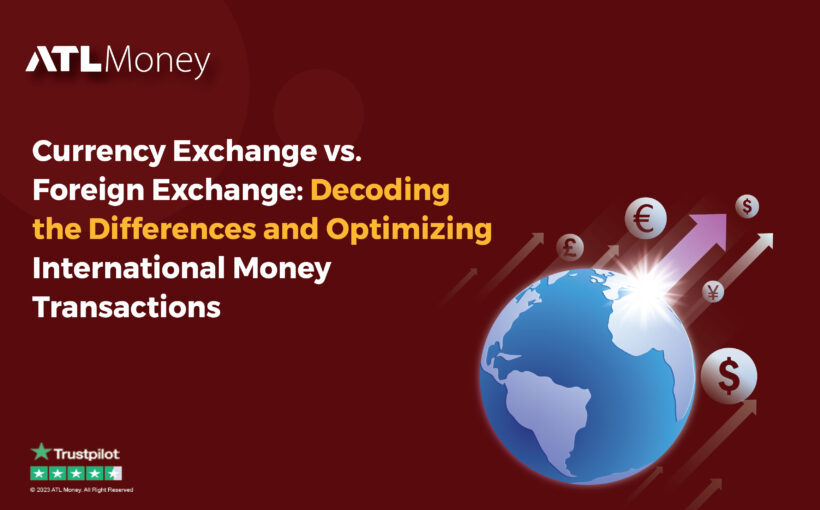When engaging in international money transactions, it’s essential to understand the nuances between currency exchange and foreign exchange. These terms are often used interchangeably, but they possess distinct meanings that can greatly impact your financial transactions.
In this comprehensive guide, we’ll delve into the differences between currency exchange and foreign exchange, empowering you to make informed decisions while optimizing your international money transfers.
By the end of this blog post, you’ll be equipped with the knowledge to navigate this realm effectively.
Understanding Currency Exchange:
Currency exchange refers to the process of converting one currency into another. This service is widely used by individuals and businesses alike, enabling them to obtain foreign currency for various purposes such as travel, investment, or business transactions. Currency exchange centers or services facilitate this exchange by providing up-to-date exchange rates and converting your money accordingly.
Foreign Exchange in the Context of International Money Transactions:
On the other hand, foreign exchange encompasses a broader spectrum. It refers to the entire market where currencies are traded globally, including spot transactions, forward contracts, options, and futures. The foreign exchange market sets the exchange rates based on supply and demand dynamics, and it involves various participants such as banks, financial institutions, corporations, and individual traders.
Key Differences:
1. Scope and Nature of Transactions:
Currency exchange predominantly focuses on individual transactions involving the physical exchange of one currency for another. It often occurs through dedicated service providers such as currency exchange offices or banks. In contrast, foreign exchange involves vast volumes of currency trading, ranging from spot transactions for immediate delivery to derivatives like futures and options for future delivery.
2. Market Dynamics:
Currency exchange rates at physical locations are typically based on current exchange rate benchmarks, which are subject to volatility and can fluctuate throughout the day. Foreign exchange rates, on the other hand, are determined by the interplay of supply and demand factors on a global scale. These rates are constantly changing, and they reflect market sentiment, economic indicators, geopolitical events, and central bank policies.
Optimizing Your International Money Transactions:
To ensure seamless and cost-effective international money transactions, it’s vital to consider the following strategies:
1. Stay Informed:
Keep track of the latest developments in the foreign exchange market that can impact exchange rates. Stay updated on economic news, geopolitical factors, and central bank decisions that can influence currency values.
2. Compare Exchange Rates and Fees:
Research and compare exchange rates and fees offered by different currency exchange providers or foreign exchange platforms. Look for trustworthy and reputable services that offer competitive rates and transparent fee structures.
3. Timing Matters:
Timing your transactions strategically can help capitalize on more favorable exchange rates. Monitor the market for trends and aim to make your transactions during periods of relative stability or when rates are in your favor.
Using ATLMoney as Your International Money Transfer Platform:
When it comes to seamless and efficient international money transfers, consider leveraging ATLMoney as your trusted platform. ATLMoney offers competitive exchange rates, lower fees, and a user-friendly online platform to facilitate your currency exchange needs. With a focus on security and compliance, ATLMoney ensures the safety and swift delivery of your funds to their intended destination, providing you with peace of mind throughout the process.
Make your international money transactions hassle-free with ATLMoney!
